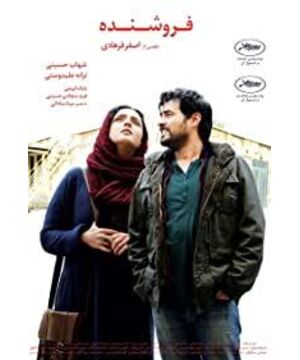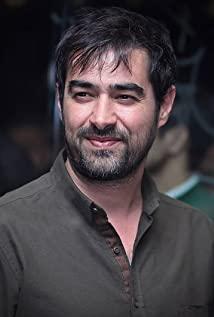In the past two days, I finished watching this year's two Oscar-winning works, "Moonlight" and "The Salesman." Personally, I think the latter is better than the former, no matter from any point of view. And emotional handling, in my opinion, is the biggest difference between the two.
After reading the former, it only left me blank. Drug addicts, single-parent families, and homosexuality are all undoubtedly popular themes in this era. But when they are forcibly twisted together, there is no link and communication, no turning and sublimation, even no expression and language, it becomes the most abrupt existence.
Looking back on every scene in the movie, I don't see any trace of emotion at all, some are just deliberate and hypocritical. It's like asking out of curiosity: Why did such an extremely boring movie win the Best Picture Award, is it just because of "political correctness"?
The latter is really amazing. After reading it, people are always caught in a kind of thought, unable to extricate themselves - what prompted the stage of a tragedy? A teacher's wife was raped (the whole film didn't really touch on the fact of being raped or not, which is probably the most irrelevant part of the film), the actor could have chosen to call the police, but was rejected by his wife, so he started Use the students to find the "rapist" - an old man with gray hair.
It was a revenge driven by inner repression. l The questioning of people around, the innuendo of the dialogue in the play, and the complaints of the wife and colleagues all make the male protagonist become the protagonist of the bitter drama in his eyes. He is a soul imprisoned by morality and religion. In front of him, the law is vulnerable, so he also used these two weapons to seriously injure the old man, causing him to suffer a heart attack and collapse in front of his family.
A sense of grief came on schedule. To be honest, I don't sympathize with the fallen old man at all, I sympathize with the heroine and the hero. The heroine, from start to finish, is like a soulless walking corpse, carrying the shackles of tainted chastity, but just wants to "let it pass sooner." But even so, when she saw the male protagonist's revenge, she actually supported it from the bottom of her heart for a moment.
And this support is exactly the same as the psychology of the male protagonist. He wanted to release the evil in his heart, but was also subject to moral sympathy, and finally forced himself to become a soulless soul. They have fallen before the threshold of the rule of law, trapped in a moral fog, like two empty wine bottles, which will never smell again.
Law loses to morality, and morality loses to desire. In the old man's heart, morality stopped in front of desire, and in the hearts of men and women, law stopped in front of morality. This is perhaps the most profound reflection of Iranian society.
But is this not a reflection of our country? The rule of law has only been implemented in my country for a few decades. Compared with the moral foundation of thousands of years, it is hardly worth mentioning. The mayfly shaking the tree is ridiculous. The crowd that went upstream saw waves of falling before the shackles of morality.
What's even more ridiculous is that morality has never really triumphed over desire. How many so-called propriety, righteousness and shame are wrapped in the fruit of desire. Even the patriotism recognized by the core socialist values is still driven by the desire for money. In the confrontation between countries, there are many people who make a fortune in the name of patriotism.
In the book "Three-Body Problem", it is written that human beings have spent hundreds of years evolving from the era of collectivism and heroism to the era of individualism, and it is impossible for an adult society to return to childhood. In this era, the emergence of the rule of law generally represents adulthood. And those who are defeated by desire and morality are generally children who want to return to childhood. In this tug of war, who will win and who will lose in the end, no one can give an answer.
Because China is a country that is too easy to repeat. Looking at Chinese history, they are always strikingly similar. Of course, this does not mean that the histories of other countries are not repeated and similar. But looking at Iran, the same ancient civilization, its history is also strikingly similar.
Comparing industrial civilization countries, the gap is really obvious. From the perspective of film and television works, they are mostly based on the present and look to the future; while we are mostly based on the present and look at the past. Even if we followed in their footsteps, we proposed the "Chinese Dream" and advocated cultural self-confidence, but so far we still don't understand what the content of self-confidence is. Is it the past or the future?
Returning to the theme of emotion, these thoughts radiating from the film generally stem from emotion. You seem to be able to directly touch the heart of every character in The Salesman. And this kind of touch may be out of empathy for "what will I do if I encounter this problem", but more out of the exhaustion of "I know this is a problem but I can't do anything about it".
Movies can't teach us how to solve problems, but it can teach us to better and more deeply understand human nature, problems, and society, so that more people can face it, face it, and actively think about solutions .
This may be the deepest power I can feel from the movie and from the emotional fluctuations of individuals. This is also my fundamental criterion for judging "The Salesman" over "Moonlight".
View more about The Salesman reviews











